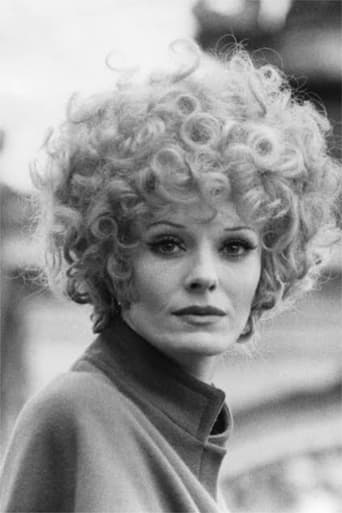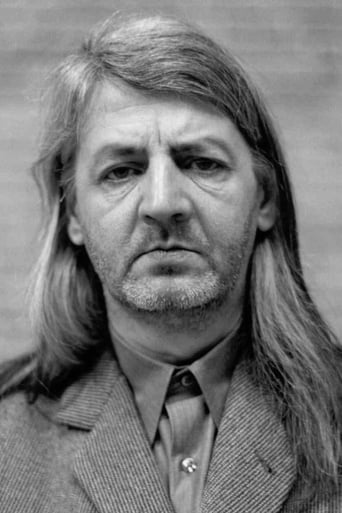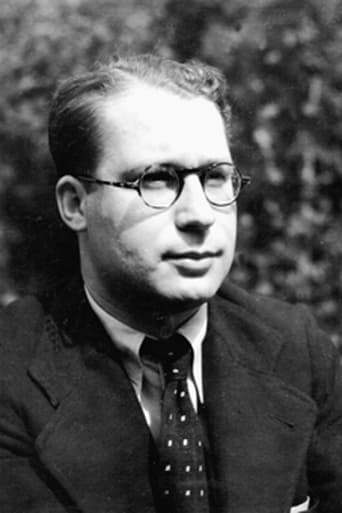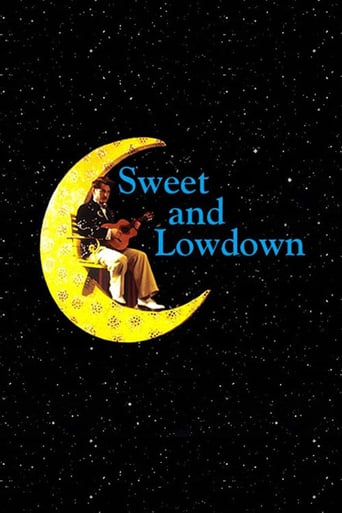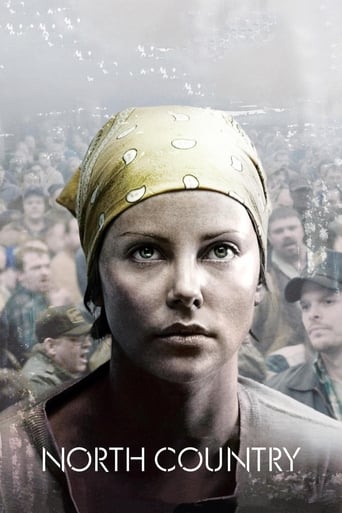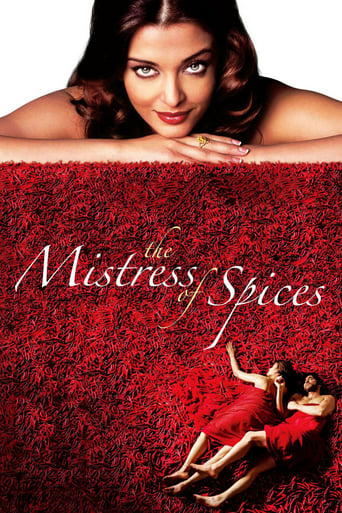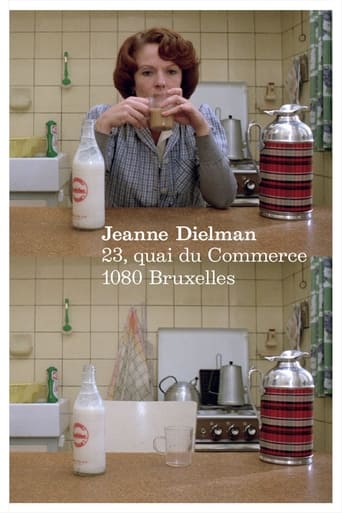
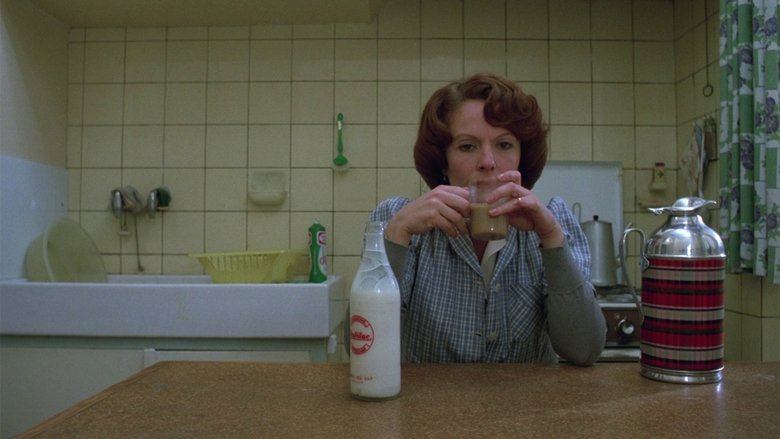
Jeanne Dielman, 23, quai du Commerce, 1080 Bruxelles (1983)
A lonely widowed housewife does her daily chores and takes care of her apartment where she lives with her teenage son, and turns the occasional trick to make ends meet. Slowly, her ritualized daily routines begin to fall apart.
Watch Trailer
Cast
Similar titles

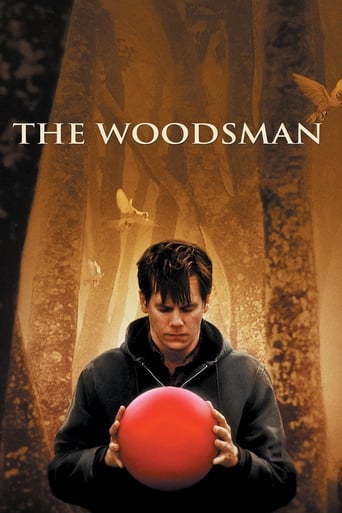
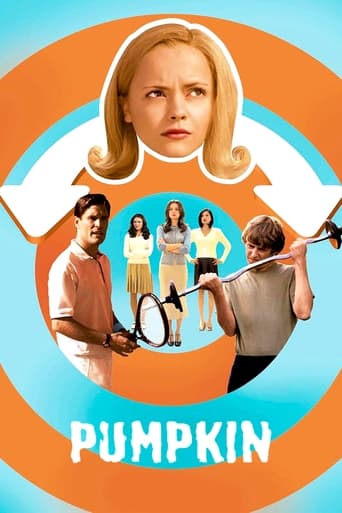


Reviews
Best movie of this year hands down!
I am only giving this movie a 1 for the great cast, though I can't imagine what any of them were thinking. This movie was horrible
This story has more twists and turns than a second-rate soap opera.
The acting in this movie is really good.
We are torn in life by emotions, desires, grievances, thoughts that surge through us and back to create self. We suffer from the pull of events outside of us; but we also suffer more acutely it seems from a life that has no pull anymore, from being every day in the same room without air.This is the essence of modern film for me, indeed what sets modern man apart, it's the baring of this self who, having sated apparent needs, finds himself no closer to fulfillment, the walls closing in, the air being sucked out from life. Neorealist characters could at least point around them to a life of squalor and ruin as explanation. But Antonioni's characters?So I'm after filmmakers who abet stillness and the wisdom that comes from it, looking for a cinema of awareness (never aesthetics). Because most movies can splash a bit of passion and noise about our predicaments. But how to achieve cessation? How to inhabit the world and our self in a way that we come finally to a measure of realization about process?Here is one of the simplest suggestions to the question, all about creating emptiness. It's my first acquaintance with this filmmaker and I'm bowled over that she made this at 24. She must have been a brilliant mind, a woman worth knowing.A woman simply goes about her daily life. She's a lonely widowed housewife, doing chores, preparing food, washing the dishes. She's also a prostitute, Akerman makes a point to reveal this at the very beginning. Her son comes back in the afternoon, she prepares dinner. She has to wake up again at dawn to make breakfast and see him off.We have no plot, no drama, and only the interminable life in between. Small rituals like trying to get her coffee right because she has nothing else to do. There's only her son in her life. Talk between them is little and the boy's habit to not pay her much mind exists on a razor-sharp edge between neglect and ease. It's heartbreaking to see how she spends her whole day tending to menial chores and he just comes in and sits to eat with barely a word. Mothers will able to relate.But this is the whole thing, how we register these moments. It's sparse, simple, minimal pundits say; better yet, it's like a modernist mantra where by repetition we come to acuity and focus about the fabric of emptiness from which sound comes. In our case, life itself, yours and mine.Is it a horrible ordeal? Can we bear it nonetheless, even if less than ideal and not what was hoped for? Is there an exit?Akerman and the regal-looking Seyrig have conspired between them; Delphine will move gracefully and with complete purpose, the film is a series of tasks carried out without complaint or hesitation, Chantal will film simply the room, allowing us emptiness to receive it. It has some of the most exhilarating atmosphere of any film I've seen.Then a pot of overcooked potatoes or a piece of cutlery that slips from her hand can ring far and wide with the vexation building up inside. When she tries to make the same small-talk she finds inane. When she picks up the baby, unsure if even out of affection anymore.The whole film is inverse Cassavetes, including the snuffing of courage at the end (he never does it). Oh it's a great ending that will brand your insides. But she had already done this for me and to leave her crushed like this, are we now more awakened or less?
Jeanne Dielman, 23, Quai du Commerce, 1080 Bruxelles defines a bleak, nearly-insufferable reality for some people, but it's a reality undoubtedly face every day - divorced or widowed mothers that must slog away at an endless bout of chores. Their persistency and compulsiveness may not be as meticulous as our titular character's, but they very well could mirror the same mannerisms and patterns in terms of carrying out these chores.For two-hundred and twenty-one minutes, we watch Jeanne Dielman (Delphine Seyrig) carry out a several day's worth of chores, whether it be mopping, washing dishes, peeling potatoes, cooking dinner, and so forth. I'd be interested in hearing the diversity of people's reactions to this material. No doubt some will cringe at the thought of sitting in front of a screen for three and a half hours, viewing a film about a single mom's daily routine. Personally, he premise had be at its naturalism.To faithful readers, it comes as no surprise I'd love Jeanne Dielman; it is one of the most naturalistic, soothing, and original films I've come across in a blue moon. We are simply observers, flies on the wall to Jeanne's daily routine, never interfering or side-stepping our role as a passive observer to her actions. It's hard not to be somewhat vocal at her actions, as we slowly see her dark side come through as she frequently prostitutes herself for money, turning tricks in a shockingly cold way.Not long after the film begins, Jeanne's compulsive routine becomes implanted in our heads, so much so that the sounds of potatoes being peeled, dishes clanking together and being washed, the faucet running, or Jeanne's footsteps on her titled-kitchen floor begin to possess a wonderful and rare musicality to them. We begin to anticipate them, look forward to them, and just sit back and listen to them, as if we're beginning to fall to the life of a routine housewife.The second day in the life of Dielman is when things begin to heat up, however; this is where we see her begin to get tired, frustrated, and sloppy. She winds up overcooking a meal, dropping a newly-cleaned dish, losing a button for a shirt and not being able to find it, among other small, easy-to-miss occurrences. With this, we see Jeanne's only vice is prostitution because it allows for a break in conventionality and a bout of unpredictability, regardless of how cold and vapid the sex so often is. Watching her put up with a thankless, rigorous routine for so long makes one wonder why more mothers aren't participating in a quietly rebellious lifestyle. For all I know, many are.Jeanne Dielman possesses some beautifully natural cinematography and tight-framing techniques, thanks to the work of Babette Mangolte's use of familiar settings as well as directress Chantal Akerman's direction that captures anything and everything in a scene. Akerman scholar Ivone Margulies claims that through her detailed expressions of scenes, depictions of routine monotony, and tightly-compacted shots, Akerman was trying to bring about ideas of feminism, a woman's role in the world at the time, as well as a bout of "anti-illusionism" to the screen, contrary to what cinema was founded on. Early cinema came about by defying reality, convention, and anything real, often inviting a magical persona in with the early shorts of the late-1800's. There's nothing magical about Jeanne Dielman - it's all real, too real.Frankly, some will still not look into Jeanne Dielman because of their lack of desire to see real-life portrayed on film. As someone who hungers for naturalism, believable events, and relatable relationships and characters in films, I find this notion hard to penetrate but can simply respect it. I've had people tell me the films of Joe Swanberg, the Duplass brothers, and Kevin Smith offput them because they're "too real" and "I don't want to see that." I feel people have been quietly, unintentionally thought that going to the movies means seeing something you couldn't see anywhere else, and that films portraying or trying to replicate real life are just not acceptable. Along comes an unassuming but powerful film like Jeanne Dielman that will be missed by people who have the same sort of petty quibbles about naturalistic film.Finally, sex is a recurring theme in the film, although it is never shown in grave detail. Consider the scene where Jeanne's only son brings up the ideas that circumvented his mind when he first discovered what mom and dad were doing in the bedroom, and the anger, hostility, and fear he felt inside of him. They were emotions too big for him to handle, and if he knew his mother was a frequent prostitute, no doubt he'd feel the same sickness. One constant theme and idea in Jeanne Dielman is the characters often say what they're really not supposed to say, leaving no filter on their thoughts. This provides for an unsurprising detailed and open account of feelings, rather than the obligatory situational comedy one would think would arise from such a feature.Jeanne Dielman, 23, Quai du Commerce, 1080 Bruxelles's runtime will no doubt be a slog for many people; this could easily be described a "maddening masterpiece," meaning that while someone can see what is trying to be done and admire the themes, have a hard time sitting through the film. To say Jeanne Dielman was an easy sit for myself would be straight-up lying. However, with each passing scene, the film found a different way to enchant and mesmerize me, regardless of inducing restlessness because of its detailed, real-time look into life.Starring: Delphine Seyrig.
Belgian screenwriter, film professor, actress, producer and director Chantal Anne Akerman's third feature film which she wrote, is based on her own childhood memories and observations of women and their ways of life. It premiered in the Director's Fortnight section at the 28th Cannes International Film Festival in 1975, was shot on location in Brussels, Belgium and is a Belgium-France co-production which was produced by producers Corinne Jenart and Evelyne Paul. It tells the story about a middle-aged working-class woman named Jeanne who lost her husband years ago and who still lives in the same apartment in the city of Brussels with her son named Sylvain who is a student at a Flemish school. Jeanne makes a living as a sex worker and a daytime child-minder for one of her neighbors children, but her solitary and exaggeratedly organized life which mainly consists of cooking, cleaning, shopping and assisting her son with his homework is slowly altering.Distinctly and statically directed by Belgian filmmaker Chantal Akerman, this quietly paced fictional tale which is narrated mostly from the main character's point of view, draws a heartrending and both intimate and distant portrayal of three days during a week in a dutiful widow and caring mother's life which is marred by her commitment to her daily routines. While notable for it's naturalistic and mostly interior milieu depictions, sterling art direction by art director and production designer Philippe Graff, cinematography by French cinematographer and director Babette Mangolte, costume design, fine editing by film editor Patricia Canino and use of colors, light and sound, this character-driven story which compassionately examines themes like gender roles, prostitution and the conditions of women depicts a dense and internal study of character where the protagonist, who all though hardly ever smiling, keeps up a brave face, and her repetitive gestures creates the continuity.This unsentimental, at times rhythmic and acutely framed drama from the mid-1970s which is set in the capital of Belgium where a war survivor who spends most of her time in her kitchen and who for personal and understandable reasons lives in a self-made prison of rituals which she thinks protects her from the non-existing dangers she thinks might occur if she changes anything, is impelled and reinforced by it's cogent narrative structure, subtle character development and continuity, modest atmosphere, sparse dialog, moments of silence, underlying emotional tension, sense of time and space and the understated, physical and reverent acting performance by Lebanese actress Delphine Seyrig (1932-1990). A minimalistic, climactic and inventive piece of artistic cinema and a pointed political and cinematic statement which may not be the most heart-warming or humorous narrative feature, but undeniably brave and commendably executed by a then 25-year-old filmmaker.
WARNING!!!! MAY CONTAIN SPOILER!!!I see all these reviews praising what a great feminist film this is and so I watched it (or tried to watch it). My god! And I'm not religious. Thank god for the fast forward button. Firstly, what an insult to all stay at home moms. This film makes our daily chores seem boring, unimportant and mostly painful. Jeanne Dielman was obviously a mentally insane woman that was not happy. This film, if you could call it that, is more like an experimental art projection that should've been no longer than 30 minutes. Who cares if the crew were woman on this film? The message certainly isn't feminist or empowering to women. I wanted to shoot myself after an hour watching this. Is this really the life of a housewife? No joy at all? And also these were the times when women could be a housewife and it was okay. Not like current times when housewives are looked down upon and we are expected to do all this and bring home a paycheck! I think Jeanne had it pretty easy. In current times, we would be doing all these household chores and wouldn't have time to sit down waiting for our potato to cook. We would have to be multi-tasking. I say the lead character was just ungrateful for what she had. Also, she was a PROSTITUTE! Is that really feminist? To be prostituting yourself instead of getting a J-O-B at something that betters you as a person. Also, her kid looked too old and was too old to be having her shoes polished by her mom and everything done by her. Did she really have to do everything for him? Lastly, Jeanne was too pretty and attractive to not have bunch of dirty French men chasing her where ever she was. Not realistic! And it seems they were going for realism. Bottom line, this film is out-dated. Been there, done that and not impressive. It easy to shoot the boring lives of daily life and hard to actually entertain and have a story.
